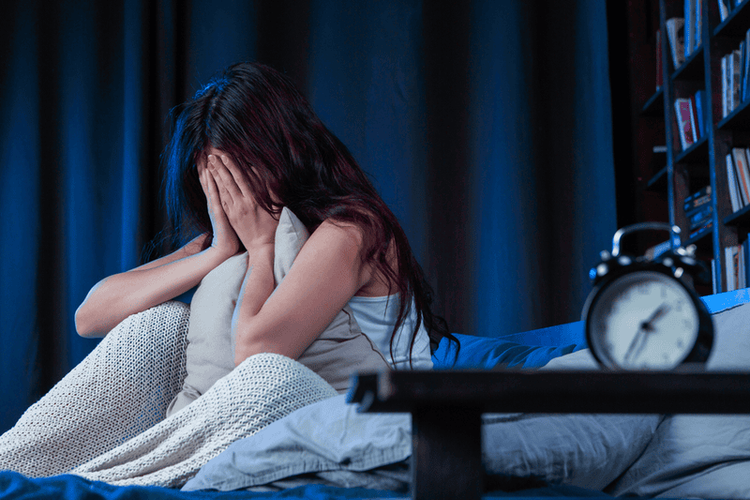This is an automatically translated article.
Idiopathic insomnia is a sleep disorder that has no known cause, cure, or cure. Drowsiness can interfere with your daily life, because symptoms are so hard to control. So you need to adjust to life with idiopathic insomnia, which is a challenge to adapt to the illness.
1. Make sleep a priority
Most adults need about 7 to 9 hours of sleep a day but people with idiopathic insomnia are different. "They can sleep more than 11 hours a night," says Sabra Abbott, an assistant professor of neurology and sleep medicine at Northwestern Feimberh Medical School in Chicago. You may not feel awake even if you sleep a lot, but you still need to rest at night.
The effects of insufficient sleep are likely to affect patients more than those without idiopathic insomnia. One researcher said: “Sleep is not optional, not everyone is required to sleep, but people with idiopathic insomnia are less likely to function well if they stay up late and sleep only for 5 to 5 days. 6 hours".
2. Get help at work and school
Idiopathic insomnia is a type of insomnia of unknown cause. One person with idiopathic insomnia tried all kinds of alarm clocks but still fell asleep. If you have trouble waking up in the morning, you should choose a place close to where you work. It could be starting flex times or later, and talking to your boss to raise awareness about idiopathic insomnia. It's important that your manager knows that your tardiness is due to a medical condition and not due to laziness or irresponsibility.
If your child has idiopathic insomnia, talk to your child's teacher about the condition. Sometimes children can be late because they really can't get up.
Idiopathic insomnia can affect learning in different ways. One researcher says it can cause symptoms such as poor memory or difficulty concentrating. Therefore, when there are extended school hours, children with idiopathic insomnia may be in dire need of recess.

Chứng mất ngủ vô căn là một loại mất ngủ không rõ nguyên nhân
3. Behavioral therapy
Cognitive behavioral therapy is a type of talk therapy. The goal is to change unhealthy thoughts and behaviors to improve the quality of your life. These techniques should be consistent with other types of medical treatment for idiopathic insomnia. Behavioral therapy works to:
Help reframe thinking: People with idiopathic insomnia often have negative thoughts such as feeling lazy. Behavioral therapy may be helpful if idiopathic insomnia is thought of as a biological disorder. Reducing anxiety and depression: There is a lot of evidence that behavioral therapy can ease mental health symptoms of all sorts of ongoing illnesses. Time Management: Psychologist Jason C. Ong, Nox Health director of behavioral medicine for sleep and assistant professor of neurology and sleep medicine at Northwestern Feinberg School of Medicine in Chicago an experimental program called behavioral therapy for insomnia. His early research shows that people with idiopathic insomnia can get more done while drowsy and may not reach their day like others, because they fall asleep much more quickly. By breaking down a day into smaller chunks of time it becomes more manageable and easier to take corrective action. Educate those around you: Idiopathic insomnia can feel like you've taken a sleeping pill. But people without a sleep disorder may not understand how a person really feels. Because sleepiness is something that every human being has to go through at one point or another. You can clear up your symptoms by bringing your loved one to an appointment. Your doctor will explain and advise you on your symptoms. Find support: Patients may feel less alone if they connect with sick people who know what you've been through. People will sympathize with each other and come up with measures to improve their lives. In short, idiopathic insomnia needs to be treated as soon as possible to avoid health risks. In addition to combining with drug treatment, you need to adjust your life and adopt a healthy lifestyle to improve.
Currently, to find the cause and determine the insomnia, Vinmec International General Hospital implements the sleep polysomnogram. This is a safe, non-invasive sleep disorder diagnosis similar to an electrocardiogram. The multi-sleep device is specifically designed to measure body activity during sleep, so it will help patients relax, pain-free while sleeping. The electrodes are glued to the scalp, near the eyes, near the chin, on the chest, near the nose and mouth....no pain. The patient is given a wireless transmitter and transmits the received signals to the server, without hindering travel. After the polysomnography was completed, the machine's electrodes were gently removed.
Through the indicators given by the sleep polygraph, it is possible to help doctors at Vinmec best diagnose different types of sleep disorders, know what kind of sleep disorder the patient is suffering from. for appropriate treatment guidelines.
Please dial HOTLINE for more information or register for an appointment HERE. Download MyVinmec app to make appointments faster and to manage your bookings easily.
Reference source: webdm













